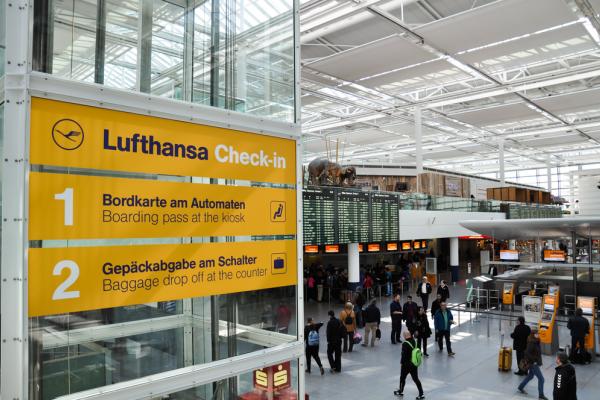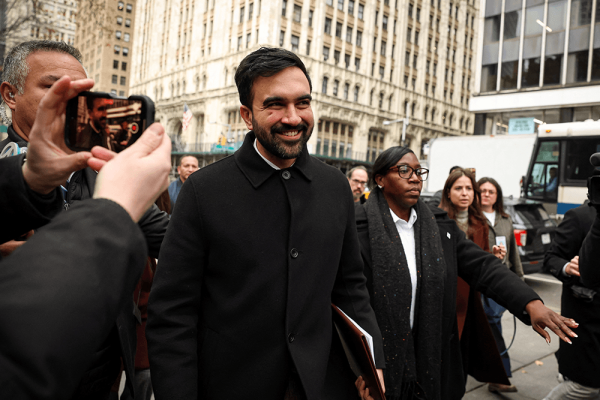On Monday, five members of an interfaith delegation traveling to Israel/Palestine were prevented from boarding their flight. The reason? Their public criticism of the Israeli government’s treatment of Palestinians.
“Very quickly we were given a list of names by the airline of people who were not allowed to board,” Alana Krivo-Kaufman from Jewish Voice for Peace told Sojourners. “They were instructed by Israeli immigration to not allow us to board the plane.”
The decision to deny entry derives legal basis in a law the Israeli parliament passed in March, which bans foreign nationals who support the Boycott, Divestment, and Sanctions (BDS) movement from entering Israel. The BDS movement seeks to put nonviolent, economic pressure on the Israeli government regarding its treatment of Palestinians. While some faith groups are concerned about the efficacy of the movement, others are supportive of similar efforts and some churches have adopted resolutions encouraging a just peace process.
But for many across the spectrum, banning those who support BDS from entry represents a particularly troubling development because it restricts travel based on political beliefs.
“I think this shows that this is a political conflict, not a religious conflict,” Krivo-Kaufman said. “We were five Muslim, Jewish, and Christian leaders who were denied entry on the basis our political actions and our support for Palestinian human rights.”
The delegation was a joint effort between Jewish Voice for Peace, the Presbyterian Peace Fellowship, and American Muslims for Palestine, who planned for the trip’s 23 participants to meet with faith groups, activists, and human rights organizations in the Israeli and Palestinian territories.
Rev. Rick Ufford-Chase, Moderator of the 216th General Assembly PC(USA), describes the delegation as a group of “committed, nonviolent peacemakers whose plan is to meet with those in both Israel and Palestine who are working every day for a just peace in the Holy Land.”
According to the Associated Press, Israeli Interior Minister Aryeh Deri justified the ban, saying the BDS movement “seeks to ostracize Israel by lobbying corporations, artists and academic institutions to sever ties with the Jewish state.” For those critical of the Israeli government, the ban illustrates Netanyahu’s Likud party’s unwillingness to come to the bargaining table — and quickness to quash dissent.
“Israel denied me the ability to travel there because of my work for justice for Palestinians, even though I’m Jewish and a rabbi," Rabbi Alissa Wise, deputy director of Jewish voice for Peace, said in a statement. ”I’m heartbroken and outraged.”
The travel ban is just one indication that the Israeli government has begun to feel economic and political pressure. In March, Netanyahu’s strategic affairs minister also began creating a database of Israeli citizens who support the BDS campaign, setting aside $25 million for the express purpose of fighting the BDS movement. According to the Associated Press, the money would go to Israeli tech companies, many of them headed by former military intelligence officers, for intelligence gathering on BDS activist groups.
“I am a little bit shocked that five faith leaders and peace activists were concerning enough to attract the attention of the Israeli immigration system,” Krivo-Kaufman said, “but then again, not surprised because we’ve been seeing a deepening crackdown on dissent in Israeli society.”
For the five who were denied entry, the Israeli government’s decision to prevent them from boarding has not deterred their work.
“As a person of faith,” says Shakeel Syed, board member with American Muslims for Palestine, “Israel’s denial of my right to visit the Holy Land doesn’t dampen, but rather emboldens my pursuit of justice and peace ...”
Got something to say about what you're reading? We value your feedback!







